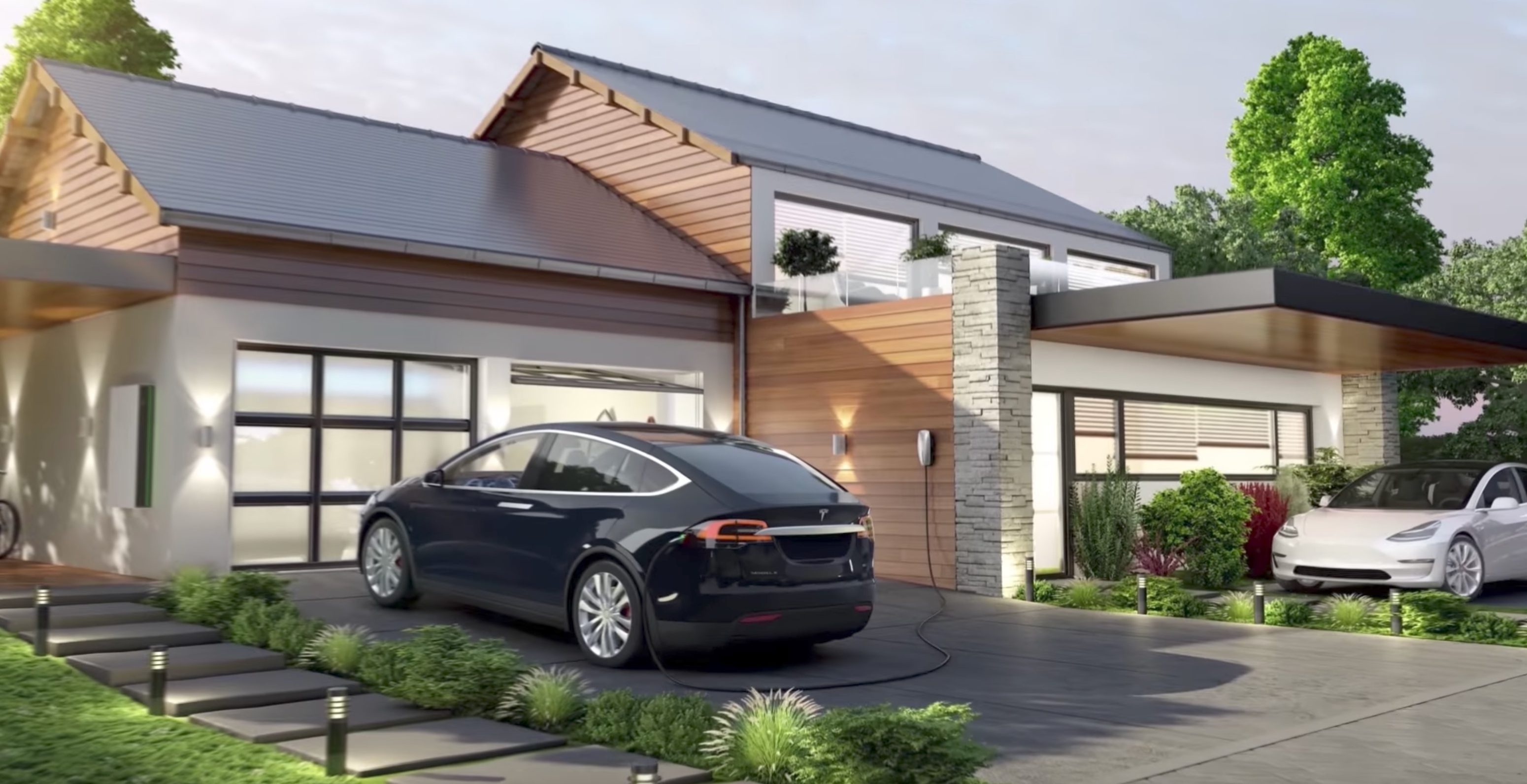Tesla Homes For Modern Living Fire Incident During Flooding Event
Tesla Homes For Modern Living Fire Incident During Flooding Event
Blog Article
Affordable Tesla Homes Video Shows Fire During Flooding Conditions

Tiny home residing continues to gain popularity, drawing people looking for affordability, simplicity, and sustainability. However, there are numerous authorized issues for tiny home residing that should not be missed. As people transition into this minimalist life-style, it's important to navigate the complexities of zoning legal guidelines, constructing codes, and land use rules.
Zoning legal guidelines dictate how land can be utilized in a selected space, affecting the place tiny homes may be positioned. In many municipalities, conventional zoning rules don't account for the distinctive nature of tiny homes. This inconsistency can result in challenges when making an attempt to put a tiny home on lots. Some regions might allow tiny homes as accessory dwelling units, whereas others could strictly prohibit them.
Building codes are one other essential facet of tiny home dwelling. These codes set forth standards for the construction of homes to ensure security, habitability, and structural integrity. Tiny homes, usually constructed on trailers or as prefabricated models, might not meet conventional building codes. It is vital to confirm whether or not local authorities recognize tiny homes and what specific codes apply to them.
Tesla Homes With Integrated Energy Solutions House On Fire During Hurricane Event
Permitting is a needed step before relocating a tiny home. Homeowners must acquire the appropriate permits to ensure compliance with local laws. This permit process can vary considerably by state or locality and will contain inspections and charges. Failure to safe the mandatory permits may find yourself in fines or the lack to stay in the tiny home.
Land considerations play a significant role in tiny home legality. Many people select to park their tiny homes on non-public property, whether or not it's a family member's land or a designated tiny home community - Tesla Homes For A Sustainable Future. Understanding property rights and lease agreements becomes imperative in these conditions. Additionally, it’s essential to confirm whether or not the chosen land is zoned for residential use.
Homeowners also needs to consider householders associations (HOAs) if residing in areas governed by these organizations. HOAs sometimes have strict guidelines concerning residential constructions and aesthetics. Tiny homes may not comply with these regulations, which can lead to conflicts. It is advisable to consult the HOA tips earlier than continuing with tiny home plans to keep away from disputes.
Tesla Homes For Sustainable Energy Fire Incident During Flooding Event

Financing choices pose another challenge. Many financial institutions are hesitant to supply loans for tiny homes due to their unconventional nature. Understanding different financing avenues, such as private loans or specialised lenders who cater to tiny homes, is essential. Exploring these options may help potential homeowners make informed choices and secure funding.
Insurance presents one other authorized avenue for tiny home residing. Obtaining insurance coverage for a tiny home can differ broadly from commonplace homeowners insurance policies. Due to their unique structures, many companies may not provide coverage, or they might require specific endorsements. Finding an insurer knowledgeable about tiny homes can help mitigate risks associated with damage or liability.
Tesla Homes For Modern Living Fully Furnished House Available For Purchase
In addition to local legal guidelines, federal rules could affect tiny home residing. Regulations from the Department of Housing and Urban Development (HUD) outline standards for mobile and manufactured homes. If a tiny home is built on a everlasting basis, it could want to fulfill these necessities. Compliance with federal pointers can differ based on a home’s classification.
One emerging choice for tiny home dwelling is placement in tiny home communities. These specialised developments usually cater to the tiny home life-style, offering devoted house and shared facilities. However, this doesn't remove the necessity for cautious consideration to native rules. Each neighborhood could have its own set of tips, leases, and obligations that residents should adhere to.
Building sustainable and self-sufficient dwelling arrangements also requires compliance with environmental laws. Tiny home builders typically aim to use eco-friendly materials and minimize their carbon footprint. However, relying on the placement, there may be legal guidelines relating to waste disposal, water use, and power consumption that influence how tiny homes could be designed and lived in sustainably.
Legal considerations extend past building and zoning. Renting out a tiny home as a short-term rental can open one other layer of legal complexities. Understanding local rental laws, occupancy limits, and enterprise licenses is essential for anyone looking to monetize their tiny home. Lawful practices can help keep away from penalties or potential litigation from regulatory authorities.
Tesla Homes With Solar And Wind Power Fire Incident During Flooding Event
As the tiny home movement evolves, advocacy groups work to address many of these legal issues. They aim to coach policymakers about the advantages of permitting extra versatile zoning and constructing codes to accommodate tiny homes (Tesla Homes With Zero Energy Bills). Engaging with native advocacy organizations can help be positive that the voice of tiny home dwellers is heard and revered in discussions regarding housing policy.
Community outreach is significant for overcoming authorized challenges in tiny home residing. Building relationships with neighbors and local authorities can foster understanding and cooperation. Providing information about tiny home benefits, similar to affordability and minimal environmental impression, can pave the finest way for eventual acceptance.
Ultimately, navigating the legal landscape surrounding tiny home dwelling requires diligence and preparation. An in-depth understanding of native legal guidelines, codes, and rules is crucial for establishing a successful and sustainable tiny home lifestyle. By conducting thorough research and making certain compliance with all legal issues, potential tiny householders can considerably improve their possibilities of a easy transition into this new way of life.
The rising allure of tiny homes comes with its share of complex legal challenges. As more individuals pursue this simplified lifestyle, it becomes imperative to stay knowledgeable and proactive concerning the legal guidelines that govern land use, building, and tenancy. Being educated on these issues permits for a extra seamless integration into the tiny home neighborhood, guaranteeing residents can maximize the advantages of dwelling inside a smaller footprint.
Tesla Homes With Zero Energy Bills Tours Available At Power Station Facility
Tiny home living provides an revolutionary answer to present housing challenges, but it doesn't come with out its obstacles. Legal concerns for tiny home living encompass various features, from zoning legal guidelines to insurance coverage and group compliance. Addressing these components with a comprehensive understanding can facilitate a smoother journey into the world of tiny homes.
In summary, embracing the tiny home way of life necessitates a radical examination of the assorted authorized issues that accompany it. Awareness of local legal guidelines, building codes, and neighborhood regulations can significantly impression the success of a tiny home enterprise. With the proper strategy, tiny home dwelling is normally a fulfilling and legally compliant choice. By find more information educating oneself and fostering constructive neighborhood relationships, people might help shape the way ahead for tiny home dwelling in a legally sound method.
- Understanding zoning legal guidelines is essential; totally different municipalities have varying rules that may impact the place tiny homes can be positioned.
- It's important to determine if the tiny home qualifies as a copyright or an RV, as this distinction impacts building codes and permits.
- Research native constructing codes to ensure compliance; many areas have particular requirements concerning size, security features, and construction materials.
- Investigating land use rules might help keep away from conflicts with neighbors and ensure the tiny home community adheres to local pointers.
- Address potential title points when buying land; some tiny homes are classified as private property, whereas others may be real property, impacting financing choices.
- Consider the impression of house owner association (HOA) guidelines that may prohibit tiny home residing or impose extra requirements for homes within their jurisdiction.
- Insurance insurance policies for tiny homes differ considerably; obtaining the proper coverage can shield in opposition to liabilities and damages that traditional householders face.
- Evaluate utility hookups and rules associated to water, sewage, and electrical energy to ensure that the tiny home can be correctly serviced.
- Be aware of property tax implications; the classification of the tiny home can have an result on tax duties and local assessments.
- Stay informed about potential modifications in laws, as legal guidelines governing tiny homes are evolving and may differ considerably over time and location.
What zoning legal guidelines apply to tiny homes in my area?undefinedZoning legal guidelines differ considerably by location. It's important to verify together with your local planning division to know whether or not tiny homes are permitted and if any specific regulations apply.
Tesla Homes Designed For Sustainability Fire Incident During Flooding Event
Do I want a building allow for a tiny home?undefinedMost municipalities require a constructing allow for constructing or putting a tiny home on a everlasting basis. Temporary constructions or RVs could have different rules, so confirm with native authorities.
Can I park my tiny home on my property?undefinedParking regulations depend on local zoning laws and land use insurance policies. Ensure your property is zoned for residential use, and verify any HOA guidelines if applicable.
Are tiny homes thought-about as everlasting housing?undefinedTiny homes could be categorized as both everlasting or momentary housing. If they're on a basis, they usually are seen as everlasting dwellings; in any other case, they could fall underneath RV rules.
What are the utility hookup necessities for tiny homes?undefinedUtilities corresponding to water, electricity, and sewage should adjust to local codes. Check with utility suppliers and native rules to make sure correct installations and connections.
Tesla Homes For Green Energy Enthusiasts Fire Incident During Flooding Event
How do I finance a tiny home legally?undefinedFinancing options for tiny homes vary. Some lenders supply loans for tiny homes on foundations, while others contemplate them RVs. Research financing choices specific to your tiny home's classification.
Will my tiny home need to satisfy building codes?undefinedIf your tiny home is assessed as a everlasting dwelling, it should meet applicable building codes. Always consult native building authorities to make sure compliance throughout construction.
Tesla Energy Homes For Sale Tours Available At Power Station Facility
Can I use my tiny home as a rental property?undefinedShort-term rental rules would possibly apply when you intend to lease out your tiny home. Familiarize yourself with native rental laws and procure needed permits to avoid fines.
What are the tax implications of owning a tiny home?undefinedTax implications can differ based in your location and the classification of your tiny home. It's advisable to seek the advice of a tax professional to know property taxes and potential deductions.
Are tiny homes topic to local housing regulations?undefinedYes, tiny homes may be this website subject to housing laws, especially if they are classified as everlasting residences. Review your local housing codes to make sure compliance with safety and habitability requirements.
Report this page